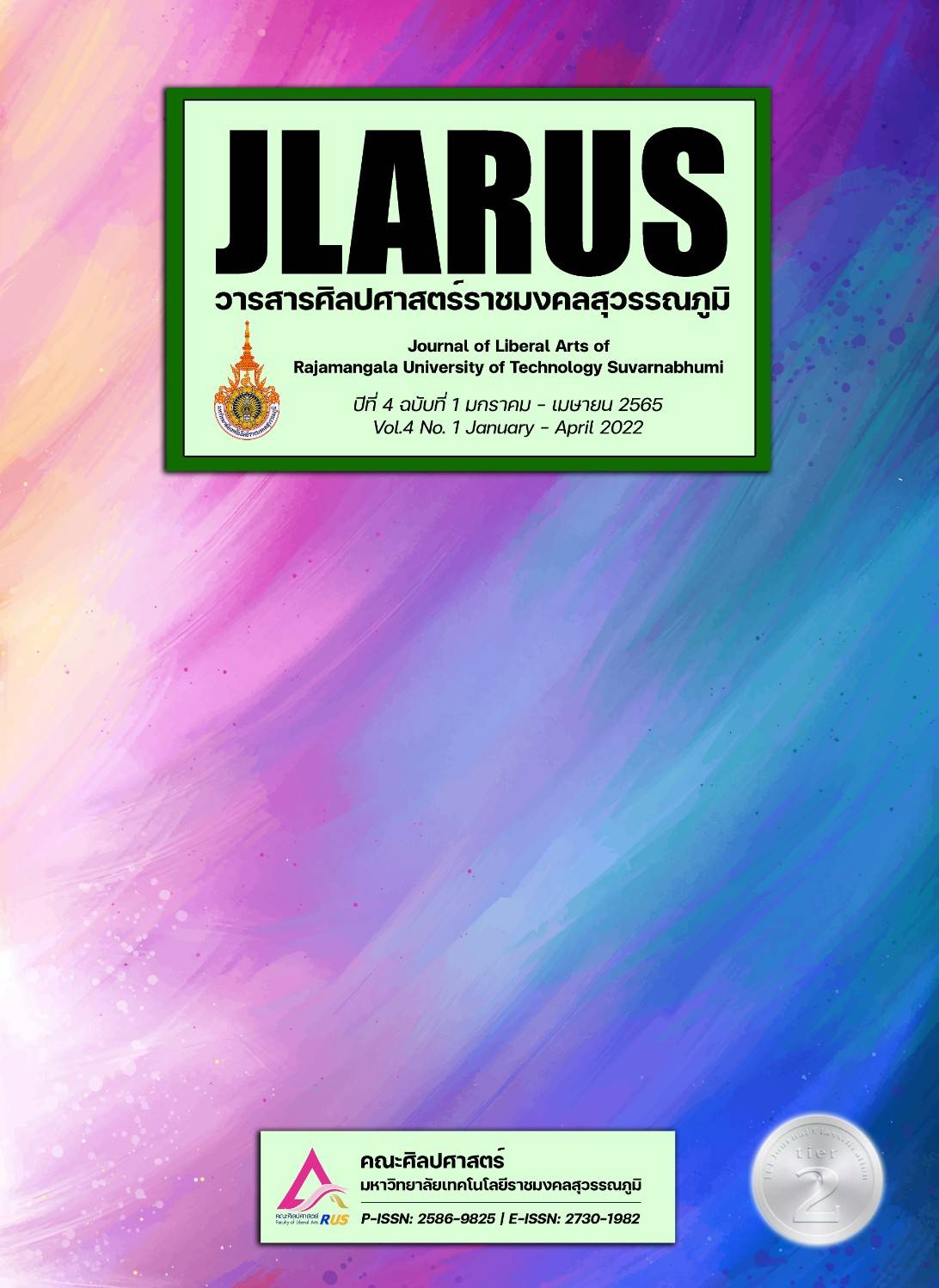ENHANCEMENT OF THAI TEACHERS' COMPETENCIES IN THAI EDUCATION 4.0
Main Article Content
Abstract
Enhancement of Thai teachers' Competencies in Thai Education 4.0 is a very important issue in education management at the present era which has to enhance teachers' competencies in the education field to be consistent with Thai Education 4.0 following the concept of "stability, prosperity, sustainability." This framework is a goal of development in all areas. However, bringing the Thai education system 4.0 to be an important mechanism that enhances quality personnel and human resources, increases the potential to drive development towards the goal, strengthens students' ability to think in problem-solving, and produces and creates product skillfully. Therefore, teacher development is important, like the first brick that must be laid with knowledge, attributes, and ability to be the foundation of the next transformation. In considering the teacher competencies, which consisted of core and functional competencies including the enhancement of teacher skills based on the C-Teacher concept and the role of E-Teacher, which is an overview of the approach to developing teachers in the 21st century in becoming qualified and competent persons in accordance with the Thai Education 4.0 Framework. It was found that learners’ life skills, knowledge and morals should be developed with the adjustment of teaching and learning to be more appropriate and tangible. Thai Education 4.0 found that Enhancement of Thai Teachers’ Competency have the ability to develop learners to have skills in life. Having knowledge of virtue, teachers need to adjust their teaching and learning to suit the situation appropriately and more concretely. Thai Education 4.0 will be successful according to the conceptual framework and desired goals.
Article Details

This work is licensed under a Creative Commons Attribution-NonCommercial-NoDerivatives 4.0 International License.
References
ดิเรก พรสีมา. (2559). ครูไทย 4.0. สืบค้น 4 พฤศจิกายน 2559. จาก https://www.matichon .co.th/news/345042.
ถนอมพร เลาหจรัสแสง. (2560). ทักษะแห่ง ศตวรรษที่ 21 เพื่อการพัฒนาอาจารย์ของมหาวิทยาลัยเชียงใหม่. สืบค้น 2 สิงหาคม 2560. จาก http://www.pharmacy.cmu.ac.th /unit/unit_files/files_download/2014 - 04-10.pdf.
ศิริพร ปัญญาจันทร์. (2560). บทบาทครูในยุค ปัจจุบัน E-teacher. สืบค้น 14 ตุลาคม 2561. จาก http://www.inf-education.com/Quality%20 assurance/Academic/file/e-tea cher.pdf.
สำนักงานคณะกรรมการการอุดมศึกษา. (2560). เส้นทางสู่อุดมศึกษา 4.0 ยุทธศาสตร์ชาติ 20 ปี กับการอุดมศึกษาไทย. อนุสารอุมศึกษา, 43(465), 16–19.
สำนักงานคณะกรรมการการศึกษาขั้นพื้นฐาน. (2553). คู่มือประเมินสมรรถนะ (ฉบับปรับปรุง).กรุงเทพมหานคร: สำนักพัฒนาครูและบุคลากรการศึกษาขั้นพื้นฐาน.
เสาวลักษณ์ พิสิษฐ์ไพบูลย์. (2560). ขับเคลื่อนการศึกษาไทยสู่ไทยแลนด์ 4.0. สืบค้น 18 มีนาคม 2563. จาก http://www.thaihealth.or.th/Content/33499%-ขับเคลื่อนการศึกษาไทยสู่%ไทยแลนด์ %204.0.html.
อภิภา ปรัชญพฤทธิ์. (2561). การพัฒนารูปแบบการผลิตครูเพื่อรองรับการศึกษายุค 4.0. กรุงเทพมหานคร: จุฬาลงกรณ์มหาวิทยาลัย.
Anderson, J. R. (1995). Cognitive psychology and its implications. (4th ed.). New York: W.H.Freeman and Company.
Harkins, A. M. (2008). Leapfrog Principles and Practices: Core Components of ducation3.0 and 4.0. ʻēkkasān kān prachum rư̄ang kānčhatkān rīanrū Education 4.0 walai ʻAlongkō̜n mōdēn [Meeting Documents on Learning Management Education 4.0 the Model of Valaya Alongkorn]. 1st July 2016 at Valaya Alongkorn Rajapat University under the Royal Patronage.


